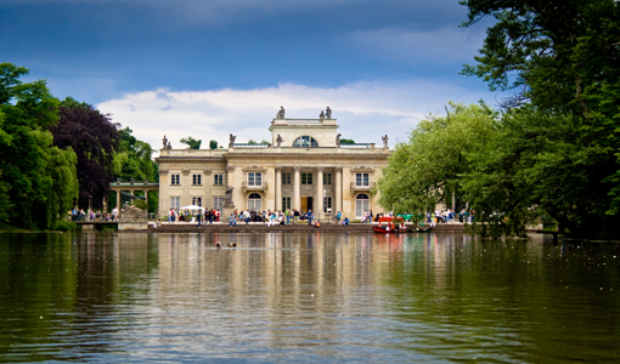An excerpt from a talk delivered by the Most Rev. Jozef Zycinski, archbishop of Lublin, Poland, on April 8, 2002.
I am very happy to be here today to share my solidarity with you, to discuss the universality of the Church, and to explain how we have avoided the dramatic process of secularization that has taken place in recent years in Ireland and in Quebec.
In the evolution of religious behavior in Poland we had two false forecasts dealing with apossible religious crisis. The first forecast was formulated publicly in 1945 when Warsaw was in ruins and the Communist Party secretary discussed the possibility of rebuilding Warsaw. His answer was, “Warsaw, yes, but there is no reason to rebuild the churches. After 20 years of Communist Party power – no one will be going to church.” Finally, the people rebuilt, not the government. And after 20 years, 1 million inhabitants of Warsaw took part in a procession to celebrate the Polish millennium (while communism was already experiencing a rather difficult time).
The second forecast was formulated in the 1980s, when the decline of communism wasalready obvious. Many liberal prognosticators were saying, “When communism disappears, the power of the Roman Catholic Church will also disappear, because the Polish people only attend Mass to express their anti-communist attitude.” And that, too, proved false. After 12 years of a free society the level of priestly vocations has remained the same in Poland. So although the birthrate is now lower, we have approximately the same number of men entering our seminaries every year. When I was bishop of Tarnow, which has a large seminary, in one year I ordained 53 new priests. And I was paid a visit by a bishop from Rouen, France, who told me, “In my entire time as a bishop, I did not ordain fifty priests.”
Polish families are fostering a spirit of ideals, of Christian values, and commitment to the religious traditions in their children. The same holds true for the level of religious practice. Priests say that the lines of people waiting for confessions before Christmas and Easter are now longer than they were 15 years ago. So there is no crisis of religious practice.
There were, however, some more pessimistic moments prior to 1993. That year was a crucial moment when the anticlerical feelings, expressed mainly by the media, were so strong that many people – specifically priests – were frustrated and thought there would be a crisis in Poland. Thanks be to God, most priests recognized their new roles and responsibilities, and their language of dialogue evolved after four years of freedom. Now we have much better dialogue than existed previously. So there were indications that maybe an Irish version of the Church’s crisis would emerge also in Poland. Thanks be to God, this was not the case.
Why? I would say that tradition, and the variety of styles in the Polish church, have played important roles. When Europe was going through religious wars and the principle cuius regio eius religio was practiced, we never accepted that principle in Poland.
There also was the dialogue of the Church with culture, even when former Marxists took part in discussions. There was a time when Kolakowski was a Marxist. Later, when he left the Communist Party, he expressed his sympathy with humanistic empiricism and with logical positivism. But when he attended the Congress for Christian Culture in Lublin two years ago, he defended Christianity and argued that there is no reason to claim that we live in a post-Christian world because our culture and society are inspired by Christian values. Instead of celebrating the postmodern mentality, we should discuss the role of such values.
So to have a religious society, not only on the level of religious declaration, but also on the level of religious practice, it is important to recognize this hierarchy of values inspired by the spirit of the Gospel. In a society of transformation, we have many new problems and challenges. In the first period of freedom, many priests were frustrated as to how to face these new challenges. Now, they have had time to discover their new role, and I am rather optimistic that it could bring positive consequences.
What do I mean by new challenges in our society? The unemployment rate is horrible in Poland. We succeeded in economic reform (the situation in Poland is much better than in Ukraine or Russia), but the unemployment rate in Lublin is 18 percent. That means every fifth person who should work, cannot work. So to help the people without money survive after the Daewoo auto factory went bankrupt in December, I wrote a pastoral letter in which I invited the inhabitants of Lublin to create a system of partnerships between families that could manage financially and those who were in critical financial situations. Some of the people call this an adoption system, but I don’t use the term because it has paternalistic undertones. People could answer, “We don’t need adoption. We need jobs.” But when I announced it, there were moving instances in which both academic teachers and black-collar workers declared the possibility of cooperating with families without employment. Now in Lublin about 350 families cooperate not only for financial support, but also for psychological support.
In another domain, the Lublin area before World War II was largely known because of its higher rate of Jewish inhabitants. There was one little city with a 97 percent Jewish population. Unfortunately, only a few Jews remained after World War II because the Majdanek concentration camp was so close to Lublin. Many Jews were exterminated there. When I travel across the world, sometimes Jews will ask me, “Why did no one mourn us when we were murdered by the Nazis in Poland?” I know that after a Jewish funeral there are special prayers that express solidarity with the people who have passed away. So I have started the practice of prayers in those little cities where the populations were mostly Jewish before World War II. We now invite Jewish representatives, have Eucharist in the Roman Catholic Church, and later form a march to the Jewish cemetery to express our solidarity through the Psalms or Kaddish (both in Hebrew and in Polish). This ritual attracts the younger generation, which enters into history and is told of the Jewish presence in Polish culture. So many Jews are moved by this act of solidarity that it is building a new mutual dialogue.
Another form of contact is the bridging of east and west. When Poland enters the European Union (possibly in 2004), the area of my diocese will be the final part of Europe. On the other side of the Bug River is the Ukraine, which would not be included in the E.U. But we must create a system of cultural dialogue, a system of cooperation between our two countries, just as Poland has with Belgium and the United States. We must invite the Ukrainian and Russian people to have an open dialogue so as to make certain that cultural values will be practiced not only in Europe, but also outside of that union.
To do this, I founded the Center for East-West Dialogue, and invited teenagers and students from Ukraine, Belarus and Russia to share in a cultural discussion. In this context, there are many positive signs of recognition of the new challenges ahead, and a unified Catholic response to these new problems. Personally, I am optimistic that we can contribute new ideals to the Church’s role in contemporary culture. The young generation is so radical, in a positive sense. When we invite young students fromUkraine, I quickly discover their sensitivity and openness to Christian traditions, and it is a source of great optimism for me.
In my opinion, we shouldn’t be terrified by the drama of radical secularization in Irelandand Quebec. There are many countries in which this painful model is not actualized. Forinstance, the attitudes of some teenagers and students in Italy provide a different model of evolution. There are cities in Italy where there has been a radical breakdown in cultural and religious values. The only value that seems to beimportant is money.
“What will be the future evolution of our culture?” Will it be a culture inspired by the spirit of Christian altruism or the principle of pleasure? It is my duty as a bishop to be an optimist. I would prefer to offer a different Italian experience as a source of my optimism. Two years ago, during World Youth Day in Rome, I was given a lift by a group of Quinta Dimensione. The term means “the fifth dimension.” I had studied general relativity, so I understood the four dimensions of space and time, but what was the fifth dimension? A woman in the group told me that in high school they had a professor who was agnostic. The professor, trying to provoke the class, said that according to Einstein there are only four dimensions. If there were a fifth dimension, it would probably be God, and that he wouldn’t be an agnostic in such a world. As a result, a group of girls from the class decided to form their own secular institute in which they practice a form of religious life, with poverty and celibacy included. The group was formed nearly 15 years ago, and they already have 57 members. So when this young woman told me about the origin of this secular institute, and I listened to her values and her radical attitude toward life, I was positively impressed that we have so many people who are subtle, intellectually responsible and idealistic in their attitudes. The hope of the Church should be connected with them.
So let us not be so pessimistic that crisis is the only possibility, and that secularization cannot be answered positively by Christians. The case of the evolution in post-Communist Poland brings falsification to such pessimistic predictions.







